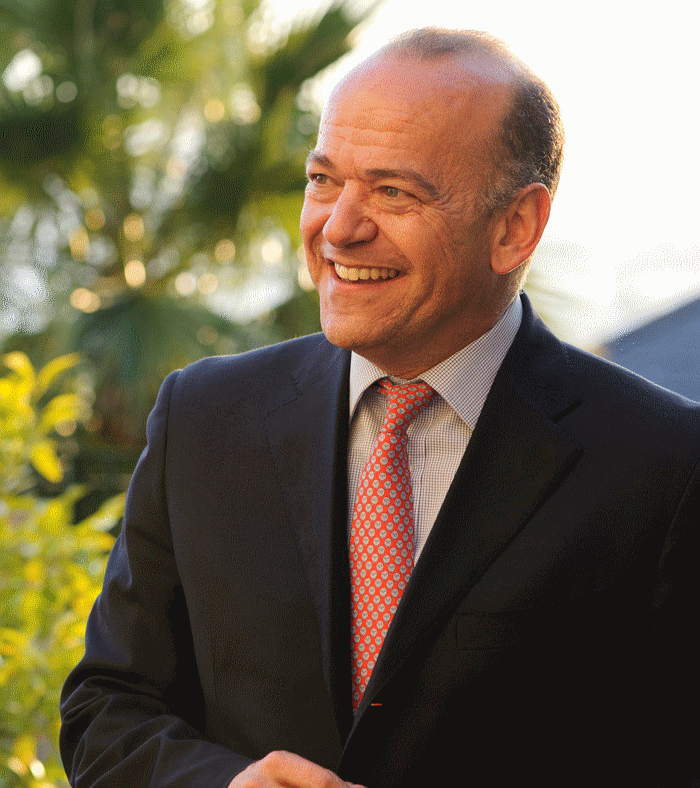The Market Integrity Working Group output is expected soon, as the group focuses on defining the appropriate market standards for crypto exchanges to strengthen market integrity, what should we expect to see come from their recommendations?
The introduction of Gibraltar’s Distributed Ledger Technology (DLT) regulatory framework in January 2018 positioned Gibraltar as the first jurisdiction to introduce regulations around DLT; this was a significant step for the fast-evolving global blockchain ecosystem. The framework included nine regulatory principles. The working group was established to deliver the 10th Core Principle of Gibraltar’s bespoke DLT regulatory framework. We can expect to see definitions for the appropriate market standards for VASP’s. This will serve to strengthen Gibraltar’s position in an ever-evolving landscape. Gibraltar is rightly recognised as a leader when it comes to fostering innovation. We are confident that the 10th Core Principle will support our licensed firms and regulatory authorities in ensuring the integrity of the market for the benefit of all stakeholders not least the consumer.
Gibraltar has been ahead of the curve within the industry, having introduced regulatory oversight to the DLT industry with the introduction of legislation at the beginning of 2018, what type of crypto asset regulation do you propose on an international level?
We believe in proactive legislation and that it should apply to all markets. Regulation should stand to further legitimize the use of cryptocurrencies and drive innovation in the industry. Gibraltar has experienced an increase in innovation since the implementation of DLT regulation, while simultaneously creating a secure industry within which to conduct business. Regulation also leads to innovation for its facilitation. For example, the Government of Gibraltar recently partnered with leading analytics firm Coinfirm to trial an Anti-Money Laundering platform. This will benefit regulatory and law enforcement agencies within the jurisdiction by increasing our ability to deliver on our anti-money laundering commitments and the countering of terrorist financing. Regulation increases confidence amongst all stakeholders while encouraging engagement from the public, improving business and security within the industry.
What makes smaller markets and jurisdictions suitable for progress in the DLT and crypto space?
Naturally, with larger markets, regulators are unable to as quickly create and deliver clear frameworks regulating the space in a comprehensive manner. Gibraltar is a small and agile jurisdiction; it is undoubtedly one of our main strengths. This made it easier to facilitate communication between all relevant stakeholders. We work to ensure there is representation from the private sector, the regulator, and the government sitting around the table to work out what it was we were doing, assessing the risks, and how to mitigate those risks. Larger states require engagement from larger institutions which naturally complicates and slows down processes.
From your experience, how can regulation stand to further legitimize the DeFi industry?
Regulators have begun proactively preparing for the future of this technology, as they are aware of its potential and its inevitable future, which includes the potential mass adoption of blockchain technology. Legislating for crypto assets will undoubtedly have a positive impact on institutional adoption. The lack of regulation in the field to date is seen as a barrier to entry for some institutions. One of the reasons why we have yet to see large-scale crypto legislation is reticence on the part of regulators who face the unavoidable issue of creating legislation that will support innovation while protecting consumers and ensuring the integrity of cryptocurrency exchanges. Regulation provides a set of clearly outlined guidelines for users and businesses engaging with DeFi. The implementation of regulation internationally could break the deadlock and apprehension surrounding the DeFi industry and lay the groundwork for the wider uptake of the advantages of cryptocurrency by individuals and businesses while protecting financial markets.
The introduction of Gibraltar’s Distributed Ledger Technology (DLT) regulatory framework in January 2018 positioned Gibraltar as the first jurisdiction to introduce regulations around DLT; this was a significant step for the fast-evolving global blockchain ecosystem. The framework included nine regulatory principles. The working group was established to deliver the 10th Core Principle of Gibraltar’s bespoke DLT regulatory framework. We can expect to see definitions for the appropriate market standards for VASP’s. This will serve to strengthen Gibraltar’s position in an ever-evolving landscape. Gibraltar is rightly recognised as a leader when it comes to fostering innovation. We are confident that the 10th Core Principle will support our licensed firms and regulatory authorities in ensuring the integrity of the market for the benefit of all stakeholders not least the consumer.
Gibraltar has been ahead of the curve within the industry, having introduced regulatory oversight to the DLT industry with the introduction of legislation at the beginning of 2018, what type of crypto asset regulation do you propose on an international level?
We believe in proactive legislation and that it should apply to all markets. Regulation should stand to further legitimize the use of cryptocurrencies and drive innovation in the industry. Gibraltar has experienced an increase in innovation since the implementation of DLT regulation, while simultaneously creating a secure industry within which to conduct business. Regulation also leads to innovation for its facilitation. For example, the Government of Gibraltar recently partnered with leading analytics firm Coinfirm to trial an Anti-Money Laundering platform. This will benefit regulatory and law enforcement agencies within the jurisdiction by increasing our ability to deliver on our anti-money laundering commitments and the countering of terrorist financing. Regulation increases confidence amongst all stakeholders while encouraging engagement from the public, improving business and security within the industry.
What makes smaller markets and jurisdictions suitable for progress in the DLT and crypto space?
Naturally, with larger markets, regulators are unable to as quickly create and deliver clear frameworks regulating the space in a comprehensive manner. Gibraltar is a small and agile jurisdiction; it is undoubtedly one of our main strengths. This made it easier to facilitate communication between all relevant stakeholders. We work to ensure there is representation from the private sector, the regulator, and the government sitting around the table to work out what it was we were doing, assessing the risks, and how to mitigate those risks. Larger states require engagement from larger institutions which naturally complicates and slows down processes.
From your experience, how can regulation stand to further legitimize the DeFi industry?
Regulators have begun proactively preparing for the future of this technology, as they are aware of its potential and its inevitable future, which includes the potential mass adoption of blockchain technology. Legislating for crypto assets will undoubtedly have a positive impact on institutional adoption. The lack of regulation in the field to date is seen as a barrier to entry for some institutions. One of the reasons why we have yet to see large-scale crypto legislation is reticence on the part of regulators who face the unavoidable issue of creating legislation that will support innovation while protecting consumers and ensuring the integrity of cryptocurrency exchanges. Regulation provides a set of clearly outlined guidelines for users and businesses engaging with DeFi. The implementation of regulation internationally could break the deadlock and apprehension surrounding the DeFi industry and lay the groundwork for the wider uptake of the advantages of cryptocurrency by individuals and businesses while protecting financial markets.






